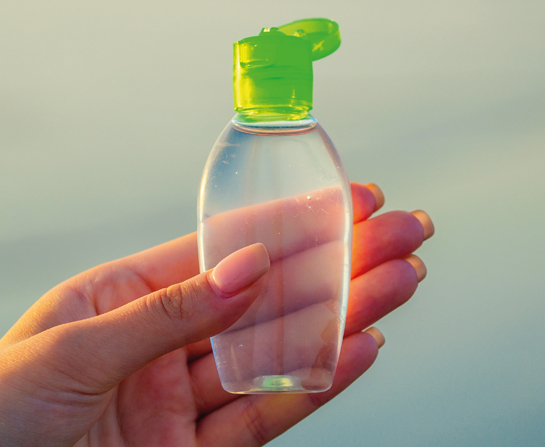Hand Sanitizers Are Great …. Only If You Don’t Have Soap and Water
April 27, 2022 Return

WORDS PANK JIT SIN
Almost everyone has a handy bottle of hand sanitizer in their pocket or handbag. These sanitizing products are either gel or liquid based and use alcohol as their main antibacterial and antiviral agent. Some have added chemicals like triclosan and triclocarban. The US Food and Drug Administration (FDA) recently banned the addition of triclosan in soaps and other sanitizing products such as hospital cleaning agents. They didn’t want bacteria to develop resistance to the chemical and render it ineffective in disinfecting hospitals and healthcare settings. HealthToday takes a closer look at triclosan in sanitizers to see how they affect our health.
What doesn’t kill you
As the saying goes, what doesn’t kill you makes you stronger. The same holds true for bacteria and viruses. At the top of the list is the risk of antimicrobial resistance to products containing triclosan. Hospitals and clinics use disinfecting products containing active ingredients like triclosan and possibly other antiseptics under the assumption these chemicals will kill all germs. If we were to use sanitizers containing the same germicides, the germs will slowly get used to the chemicals and develop resistance. A Canadian study in 2011 found that healthcare workers who used hand sanitizers were significantly more likely to fall ill compared to their colleagues who preferred to use soap and water.
It looks like food
Sanitizers have caused accidental poisoning of children. Some parents can be overzealous in keeping their children’s hands clean using sanitizers. Children like to put their hands in their mouths, and this will introduce alcohol and other additives found in hand sanitizers into their digestive system. Worse still, some sanitizers are attractive to young children who may drink it and suffer alcohol poisoning, which can lead to low blood sugar, coma and seizures.
It can mess with your hormones
Triclosan exposure has been associated with changes in thyroid gland, which produces hormones that regulate various body functions, and testosterone levels. It also increases oestrogen sensitivity of cells, thereby potentially speeding up puberty in girls and may have negative effect on boys. The evidence comes from studies on rats which involve oestrogen receptors. People also have oestrogen receptors so triclosan probably has similar effects on them.
It can mess with your immune system
Triclosan has been associated with an increased likelihood of developing allergies in a US study.
While triclosan looks to be the major bad guy found in sanitizers, the US FDA also banned 28 other ingredients including, benzethonium chloride, chloroxylenol, chlorhexidine gluconate, and many more. In essence, FDA is telling users to stick to regular soap and water for their cleaning needs.
Soap is a surfactant, which means it makes the surface slippery and prevents things from sticking to it. Lathering our hands with soap dislodges small particles and rinsing with water effectively washes them away, leaving our hands clean.
If you like this article, do subscribe here.
“In essence, FDA is telling users to stick to regular soap and water for their cleaning needs.”
